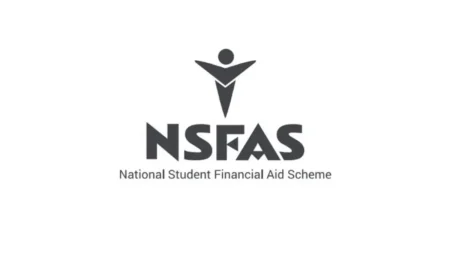The National Student Financial Aid Scheme (NSFAS) plays a crucial role in providing financial assistance to students from disadvantaged backgrounds in South Africa. As we enter 2025, several changes and updates have been introduced to improve the funding process and ensure that financial aid is allocated fairly and effectively.
This article provides a comprehensive guide on the latest developments, including the application process, eligibility criteria, disbursement of allowances, appeals process, private accommodation funding, and new policies for 2025.
1. NSFAS Application Process for 2025
The application process has been streamlined to make it easier for students to apply. The 2025 applications opened in late 2024 and closed on 15 December 2024.
Students were required to submit their applications through the online portal, providing all necessary supporting documents, including:
- A certified copy of their ID
- Parent(s) or guardian(s)’ income documents (payslips or an affidavit for unemployed parents)
- Proof of SASSA grant receipt (if applicable)
- Latest academic results
- Consent form signed by parents/guardians for financial assessment
Late Applications and Verification Process
- No late applications will be considered for 2025.
- The system is now integrated with the South African Revenue Service (SARS) and the Department of Home Affairs to ensure accurate income assessments and fraud prevention.
2. NSFAS Updated Eligibility Criteria and Academic Performance Requirements
To continue receiving funding, students must meet specific academic and financial eligibility requirements.
Who Qualifies for NSFAS Funding in 2025?
- South African citizens or permanent residents
- Students whose household income is R350,000 or less per annum
- Students with disabilities whose household income does not exceed R600,000 per annum
- First-time undergraduate students studying at public universities and TVET colleges
New Academic Progression Rules
- University students must pass at least 60% of their courses to continue receiving financial support.
- TVET College students must meet their institution’s progression criteria.
- Students who fail to meet this academic requirement risk losing their funding.
3. NSFAS Allowances for 2025
One of the main concerns for students is the disbursement of allowances, which cover essential expenses such as accommodation, food, and transport.
Types of Allowances
- Accommodation
- University students: Up to R45,000 per year, depending on institution rates.
- TVET students: Up to R33,000 per year for private accommodation.
- Living Expenses
- All beneficiaries receive a R16,500 annual living allowance.
- This amount is paid in monthly installments.
- Transport
- For students living off-campus but within a 40km radius of their institution.
- Up to R7,500 per year.
- Books and Study Materials
- University students receive R5,460 per year to cover books and study materials.
How Will Allowances Be Paid in 2025?
- TVET College students will continue receiving their allowances directly into their personal bank accounts.
- University students will still receive their allowances through their institutions until the new banking system is fully implemented.
- Students must ensure that their bank details are correct and updated to avoid delays.
4. NSFAS Appeals Process for Unsuccessful Applications
For students whose applications were rejected or whose funding was suspended, an appeals process is available.
How to Appeal a Rejection
- Students can submit an appeal through the online portal.
- They must explain their reasons and provide supporting documents, such as:
- Proof of household income change (e.g., if a parent lost their job).
- Academic transcripts proving sufficient academic progress.
- Medical reports or affidavits (if applicable).
Appeals Deadline
- Appeals must be submitted within 30 days of receiving a rejection notice.
5. Private Accommodation and Student Housing
A major change in 2025 involves funding for private accommodation. Due to widespread fraud and inflated rental fees, a cap has been introduced on student housing costs.
- Maximum cap for private accommodation: R45,000 per year.
- Landlords must be registered and meet basic student housing standards.
- Students renting privately must submit lease agreements before receiving accommodation allowances.
- The aim is to prevent students from being overcharged and to ensure fair access to quality accommodation.
6. Digital Advancements and Banking System
Efforts to modernize financial aid include improved digital solutions.
Bank Account and Digital Payments
- A new banking system faced delays but is expected to launch fully by mid-2025.
- This system will:
- Reduce fraud and mismanagement of funds.
- Allow students to withdraw allowances from approved ATMs.
- Provide a secure and transparent way to manage student finances.
- Until the transition is finalized, university students will continue receiving their allowances through their institutions.
7. Common Challenges and How to Overcome Them
Many students face delays in payments, application rejections, and funding suspensions. Here’s how to avoid common problems:
- Ensure that your details (banking, contact, and academic) are correct in the online portal.
- Submit all required documents on time to avoid verification issues.
- Regularly check your application status to resolve any issues before they escalate.
- If you are rejected, submit an appeal promptly with the necessary evidence.
Check also: NSFAS Appeal Process for Returning Students: A Complete Guide
The financial aid system is continuously evolving to enhance accessibility and fairness for students in need. The introduction of stricter academic requirements ensures that funding is allocated to students who demonstrate commitment to their studies, while improved digital systems streamline the application and disbursement processes, reducing delays and fraud.
Additionally, tighter regulations on accommodation funding aim to prevent exploitation and ensure students receive quality housing at fair prices.
To navigate these changes effectively in 2025, students should take proactive steps, such as applying on time, maintaining good academic performance, keeping their banking and personal information up to date, and promptly submitting appeals if necessary. Staying informed about policy updates and institutional announcements will also help prevent unexpected funding disruptions.
By taking these measures, students can secure their financial aid and focus on their education without the stress of financial uncertainty.










